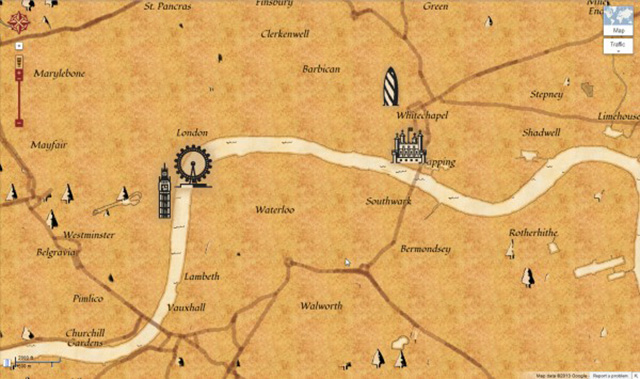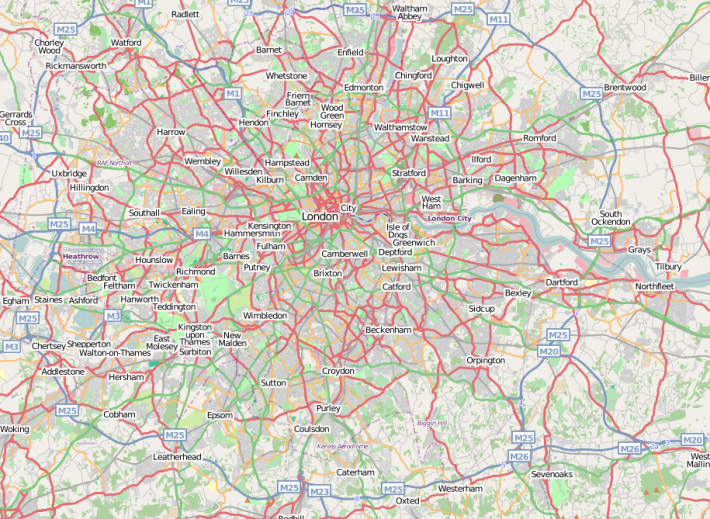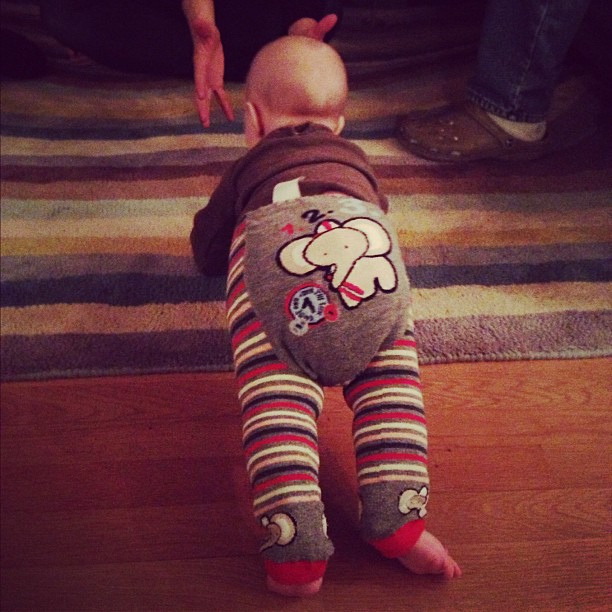"Takai desu ne."
This is one of the first sentences I ever learned from my adventures with "Mary-san" via the Japanese textbook Genki. If any of you have used that textbook, you'll know the story of my good old pals Mary and Takeshi. Ahhh, the memories! I particularly remember this lesson, partly because it was a lesson early on in my perusal of the Japanese language, and partly because it was the first time I found out a sentence could end in something other than desu (and partly because I found it strange that Mary was buying a watch from some sketchy lookin' lady on the street, but maybe that's just me).
So what is ね? This is a question I've been asking myself for a long time now. Despite how simple the little guy looks, the answer is about as unsolidified and confused as a bowl of uncovered cherry Jello that's soaked up the flavors of other unnamed substances in the fridge. Now, you may be thinking "Psssh, girl, you've been learning Japanese for how many years now and still don't know what ね means? I learned that from watching Naruto like 9 seasons ago." Yes, yes, ね should be easy as eating too much pie, but allow me to blow your mind a little bit.
ね: The Simple Version

Back in school, I was always taught that ね is a sentence ending particle in Japanese, roughly translating to "isn't it?" or "right?" blah blah blah. I'm guessing a lot of you have run into a similar explanation. It looks a lot like this:
- 暑いですね。
- It's hot (outside), isn't it?
This version of ね covers a nice chunk of ね uses out there, which is why you're taught this. But, as I started seeing and listening to actual Japanese used by Japanese people (sorry, Mary-san), I started to notice ねs showing up mid-sentence in places where the usual "isn't it?" or "right" would have made just about as much sense as rap operas (don't make sense / gotta repense / for the terrible rap opera / I gonna wipe you like a mopera♪).
- Aさん:あのねぇ、今日はね、みきちゃんがふられちゃったんだって。かわいそうだね。
- Mrs. A: Hey, did you hear? Miki was rejected by that guy she's been crushing on today! I feel so bad for her.
- Bさん:そうだね。
- Mr. B: Oh my gosh, me too.
But this was only the beginning. "ISN'T THERE ANYTHING IN JAPANESE I CAN UNDERSTAND!?" I screamed at Mary, as I retreated to the nearest corner and cried. I had no idea what was going on anymore.
ね: The Complicated Version

Fast forward many moons to future me who had gotten a lot more into linguistics. I decided to open that old can of ね worms and get me some answers, so I pulled out my robe and wizard hat. Turns out ね has been discussed significantly by sociologists and linguists alike, so a lot of the work has been done already for me. That being said, the answers aren't entirely simple. In fact, they're quite complicated, especially considering how tiny ね is, size-wise (I could totally beat up ね if we got in a fight).
Think about it this way. Ideas in language can be really difficult to define and explain to others. Those sorts of things just sort of work in your mind, no explanation necessary. Take the phrase "you know" for example. At first it seems simple, but the more you think about it, the more subtle meanings you can find. Check it out:
- "Argg. I can't wait for the next Nicolas Cage movie! Seriously, it's driving me crazy, you know?" said no one ever.
- "Hey, what's going on between you and Stacy, my pillow girlfriend of over a year now!?" "Oh, umm, I don't know what you're talking about." "Oh come on, don't play me. You know."
- "Hey, what's been goin' on lately?" "Oh, the usual. Work, kids, gardening, zombie apocalypse escape plan. You know."
"You know" is difficult to explain because it's not really a person, place, object, action, opinion, or anything else outside of communication/language. In other words, it's an expression we understand based upon the context of the conversation. Words like these are said to have "non-referential meaning", or "situational meaning." Even though"you know" is used in all three of these examples, they all carry slightly different meanings. In my opinion, this makes it hard to define abstract words like "you know" or ね, because it all really does depend on the context.
One particularly awesome researcher (linguistics fangirl alert!), Haruko Cook, has defined these types of words. She came up with the idea of "direct and indirect indexes."
Direct Index: This is the main idea a "word" (or ね) indicates in communication, or the idea a "word" always evokes. It answers the question: "What does a word 'point' to?"
Indirect Index: This is what the "word" means in a given context.

Another way to think about it is that the direct index is the more general meaning of a word. The indirect index is the meaning of a word in a specific situation. Let's think about this in terms of ね. "Isn't it?" or "right?" is just one of many indirect indexes of ね based purely on context. There are also many other ways to use ね depending on the situation, but you don't usually learn them in school.
Haruko Cook goes on to explain ね further, saying that ね directly indexes "affective common ground" (what the heck, linguists, stop being so… linguistic). This means that ね is used to establish emotional involvement (i.e. cooperation) in communication between people. Just like Highlander there can only be one direct index, and because it has to do with establishing that emotional involvement, all the indirect indexes associated with ね have to follow this idea as well.
Omoiyari and ね
This idea of "cooperation" or "emotional involvement" in the Japanese language is by no means unique. But, if you really want to understand ね, you should look at it from a Japanese perspective, since culture and language are two sides of the same coin.
One such important subject that is brought up often with ね is omoiyari 思い遣り. This roughly translates to "empathy" or "consideration for others." It basically means paying close attention to other people and cooperating with them. This includes doing your best not to say anything that will make others feel uncomfortable. According to Cook, omoiyari is one of the highest virtues of Japanese society, and ね fits right into this in a really big way.
In short, ね can be thought of as the manifestation of omoiyari in the Japanese language. This little character has to do with the human connection that we feel (or lack thereof) when we communicate with other people. Just as a conversation can't be held without the cooperation of at least two speakers, a conversation can't be held in Japanese without the inclusion of ね as well. ね is like the mayonnaise that keeps your turkey sandwich together. It keeps communication running smoothly.
The Indirect Uses of ね
Well, now that we're done with the difficult underlying cultural reasons for ね's existence, let's look at some actual examples and try to get a handle on this thing. I've broken down ね into its indirect indexes according to Haruko Cook. As you can see, all uses of ね come back to the same thing: cooperation in communication.
1. Getting Attention (Hey!)
So you've got your headphones on, jammin' out to Queen's bohemian rhapsody. I mean, you've got your air guitar out and everything, when your friend decides she has to tell you the most interesting story. ever. So she flags you down. ねえ〜! ねえ! She uses ね to get your attention. Just like this:
- 友達:ねえ!聞いてよ〜!
- Friend: Hey, listen.
- 私: 。。。
- Me: …
- 友達:ねえぇ〜!ねえってば〜!
- Friend: Heeeeeey. I said hey!
- 私:なんなのよ、さっきから!もう!
- Me: wha-whadda you want? Wait a little will you? Geez.
- 友達:聞いてね!
- Friend: Alright, will you listen to me?
Using ね in this situation is not terribly difficult to do, just use it when you want to get the attention of someone and start a conversation. This use of ね has to do with cooperation in that it asks another person to direct his or her attention to you. Without that person's attention, how could you ever start talking about last week's episode of Naruto (unless you want to talk to yourself, that's okay too)? You can't. It would be a tragically kawaii morning.
2. Requesting Confirmation
"Sweet Jiminy Christmas. You have to hear this new song." she says, shoving her headphones into your ears. "You like One Direction, ね (right)? she asks, using ね to confirm her suspicion. Oh no, not again. You don't want to hurt your best friend's feelings so you smile forcefully. "Of course you do!" she screams. And the rant begins.
- 友達: ねえ、ワン・ダイレクション好きだよね!?
- Friend: So, you like One Direction, right!?
- 私: 。。。うん
- Me: … Sure.
This is the version of ね most people are taught first, the ね that can most easily be translated into "isn't it?" or "right?" You can use this when you think you know something, but you're pretty sure that the person you're talking to knows better than you do (or perhaps you want them to think they know better than you), or when you want to get another person's opinion/agreement. This use of ね relates to cooperation because it invites the other person to participate (cooperate) in the conversation. Why the よ before ね? Sorry, that's another post.
3. Introducing a New Topic
So your nightmare has come to life. Your friend won't stop talking to you about her boy band obsession, One Direction. You love your friend so much, but if you hear one more comment about Niall Horan's beautiful Irish hair, you might have to gnaw your own arm off. Not a pretty sight. So, you decide to change the subject, with ね! Phew, saved again by ね.
- 友達:で、ナイル・ホーランの髪形超シャレてるよね!ぎゃあ〜!
- Friend: Oh my god, so Niall Horan's hair is freaking amazing, right? HNNGG.
- 私:ふふふ、ね。あのさあ、てか、今日のカフェテリアのミートローフヤベーよね。
- Me: Hohoho. Why I suppose it is. By the way my good sir, are you aware that the meatloaf in the cafeteria today is absolutely fantastic?
Pretty self explanatory: use ね to change the subject of conversation. Don't you hate it when you're talking to someone you don't know very well and everyone's go-to topic of "weather" just sort of keels over and dies, leaving you with this terrible awkward silence? Changing the subject can be tricky if you don't know what the other person likes/wants to talk about, so you're hoping that they will cooperate with you, right? With friends, you might expect their cooperation a little more, but you can still use ね.
4. Keeping the Floor (Continuing to Talk)

Okay, you finally manage to change the subject, yay you! And, you're on a roll about how delicious the meatloaf you ate for lunch at your school cafeteria was, but your friend just can't contain herself for that long. So, you have to keep letting her know that you're not done with your story even if you take a dramatic pause, right? RIGHT? You haven't even gotten to the part about the instant mashed potatoes yet and you can't be interrupted. Sheesh. So what do you do? Use ね of course!
- 友達:まあね。
- Friend: I guess…
- 私:マッシュポテトもね
- Me: And sweet bumpkin pie, the mashed potatoes, too
- 友達:あー
- Friend: Um-
- 私:グレイビーがたっぷりかかっていてね
- Me: All covered in gravy
- 友達:あー
- Friend: Ah-
- 私:めっちゃめっちゃうまいよね
- Me: Thems are somethin' delicious!
- 友達:。。。ナイル・ジェームス・ホーランの髪形みたいに切れば似合うと思う?
- Friend: … Sooo, do you think I'd look good if I cut my hair like Niall Horan's?
This is when the ねs start going crazy. You've got them ねs all up in here. When telling a long story or giving an explanation, it's natural to pause here and there to take a breath once in a while, take a dramatic pause, have a bite of a hoagie, you know. You also might want to make sure the other person is actually listening to you and not trying to imagine you speaking in Morgan Freeman's voice. This is where ね comes in. Use ね throughout your speech to let other's know you're still talking or to get their feedback. This definitely requires cooperation in that it asks the other person(s) not only to sit through your horribly long story, it also gets them involved in the conversation by soliciting aizuchi.
5. Making a Correction Less Direct/Giving Constructive Criticism

But your friend doesn't want to hear about your potatoes. Your potatoes aren't more important than Niall Horan's hair. This is a problem, but how can you tell you friend!? Oh the tragedy. But wait, you can use ね! You remember, by using ね you can lighten the blow of the shocking truth when you tell her that you don't actually want to hear about One Direction all the time and you would prefer if she limit her One Direction fangirling to roughly 27% of your friendship. You can be a good friend and tell her the nice way with ね! Constructive criticism, go!
- 私:あのさあ、ワン・ダイレクションの話はね。。ちょっとね
- Me: Hey, actually, about the whole One Direction thing, I'm getting kind of tired of that…
Telling someone something they don't want to hear can be really tough, but sometimes you just have to do it. But whenever that happens, the least you can do is say it nicely. By using ね when you correct someone, you can do just that. (It also might prevent any swirlies that might come your way.) Here is a great example of a teacher correcting a student. Every time he corrects the student, he uses ね. Listen!
6. Showing Friendship and Intimacy
So ね saved your friendship when you finally let your friend know the truth of the situation, but you really want to let her know that you guys are still BFFs forever, homie-Gs, whatever you kids say these days dagnabbit. ね does just the job. It lets others know that you are open. Friendly. Fat and sassy. Use it with those that are close to you, ね?
- 私:私達一生大親友だよね?
- Me: We'll be best buddies forever, two peas in a pod. Am I right, or am I right?
- 友達:;_;ね。
- Friend: You're right. Forever.
Using ね a lot is the mark of a casual relationship, well, because relationships take a lot more cooperation than a lot of other things in life. Not only that, but a deeper human connection is felt between friends than strangers (or at least I hope so). In this situation, ね is often translated as sure, as in "It sure is a wonderful day today!" except a lot less Richard Simmons.

7. Teaching Children
Alright, great job! You've used ね well all your life. You haven't been beaten to a pulp because of it and you've lived to be a ripe old age. Maybe in the future, say 50 years from now, you'll have kids to tell all your crazy stories to. Oh, and you'll also have to brainwash I mean teach them what kind of music to get their groove on to. Good ol' ね, you never fail. You use ね to teach your children where it's at. Queen anyone? Anyone? Bueller?
- 私:クイーンはいいね、赤ちゃん〜
- Me: Son, I'm just letting you know right now that Queen was the best band to ever roam the Earth.
- 赤ちゃん:うん!
- Baby: Yes, Mama.
I'm guessing you won't use ね in this situation very often, but it's good to know anyway. Parents use ね when they are teaching their kids something new or reinforcing a behavioral concept. Basically, they just want the little punks to act socially acceptable and cooperate with them! Ah, looks like people have the same problems no matter where they're from. You might also hear you teacher use ね a lot like this!
Wow, ね is really used a lot in conversational Japanese. In fact, it's the most commonly occurring particle according to Cook. Also, have you noticed that ね doesn't appear much in written work? Perhaps that's because the cooperation of another person isn't needed when writing.
The hardest part about mastering a particle like ね, is that you can't just remember a definition out of a textbook. And although it's useful, Cook's indirect indexes of ね are by no means an exhaustive list. ね usage varies from person to person, and there are plenty of other situations that you can use it in. Learning a language is all about getting into a totally different mind set, it's like installing a new way of thinking into your brain! That's why it's important to get used to thinking from a Japanese perspective rather than just rote memorizing a bunch of words.
So let's take a step back.
Take a look at the sentence we started this whole article off with:
"Takai desu ne."
Now we know ね can carry different many different nuances depending on the context. In the textbook Genki, Mary uses this sentence when she wants to let a "shop keeper" know that she would rather not buy something so expensive. Do you think this fits with any of the indirect indexes listed above?
Argue your case on Twitter! Let's all talk about our experiences with ね! What are your thoughts? challenges? advice? I want to hear it.
Also, I'd recommend you read Haruko Cook's article "The Sentence-Final Particle Ne as a tool for Cooperation in Japanese" if you'd like to read more on this subject, or if you just want to challenge what I've got to say. Dooo iittttt.
P.S. Here's a song called ねえ by Perfume. Be careful not to get it stuck in your head! That already happen to me…
